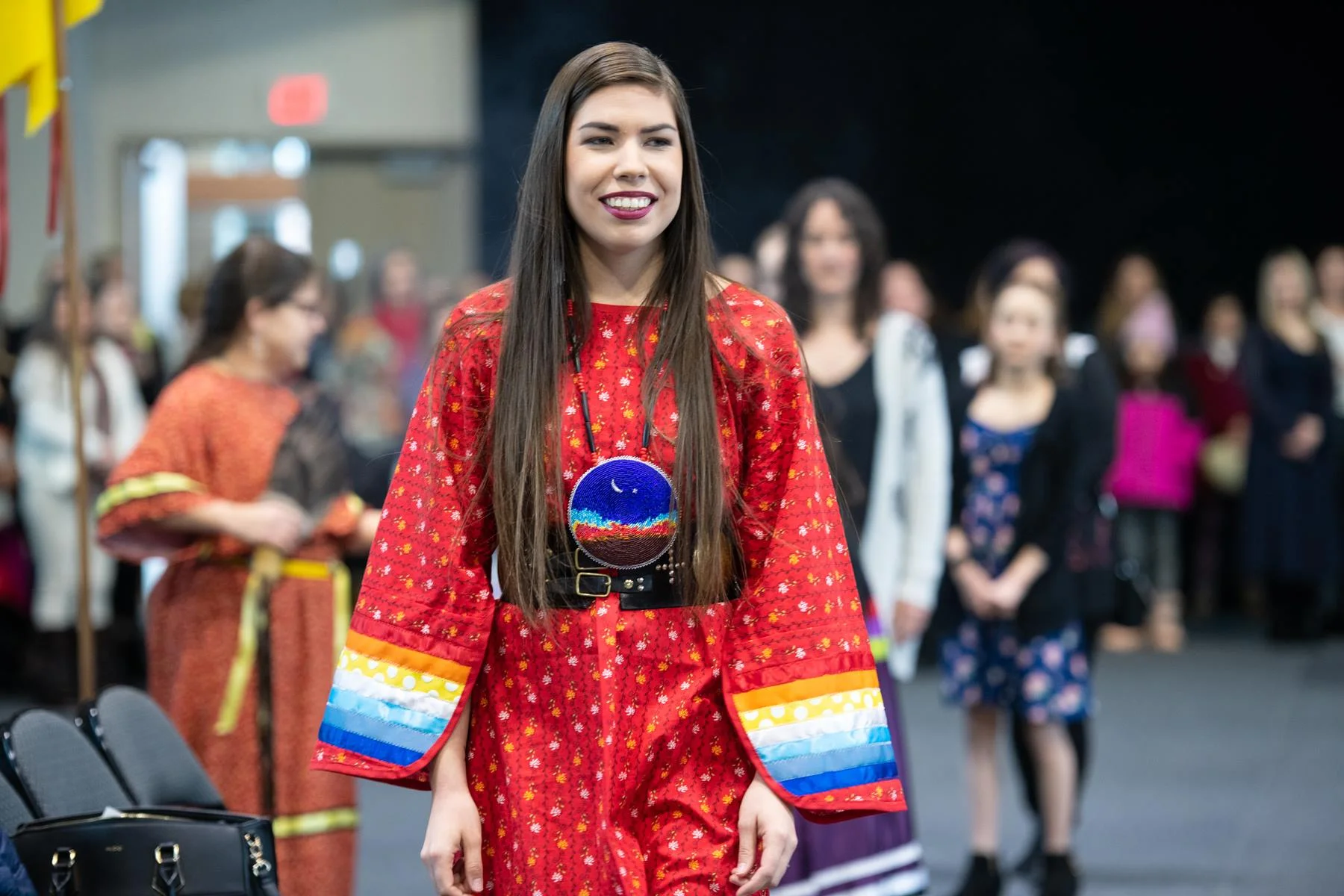Amanda Reid Rogers
Piluwitahasuwin (Assistant VP Indigenous Engagement)
I am Dakota-Sioux and a band member of Birdtail Sioux First Nation, born and raised in Wolastokuk (Wolastoqiyik unceded ancestral lands). Completing a master's degree in Nursing, I've recently stepped into the inaugural role of Piluwitahasuwin (Assistant VP Indigenous Engagement) at the University of New Brunswick. Beginning with a seminar presentation in high school, but more intensively over the past four years, I have used my voice to tell the truth about Indigenous experiences in Canada. In my role at UNB, I am deeply committed to collaborative work that aligns with decolonization and piluwitahasuwawsuwakon (allowing your thinking to change so that action will follow in a good way toward truth).
What are you most proud of professionally? And who or why?
On February 21, 2019, I had the great honour of participating in a historic installation ceremony at UNB to celebrate the role of Piluwitahasuwin. Elder Imelda Perley, Wolastoqi Grand Chief Ron Tremblay, and clan mother Ramona Nicholas led the ceremony. It signified a sacred commitment, among participants, to right historical wrongs and align relationships based on peace and friendship between Indigenous and non-Indigenous peoples.
What’s your vision for Atlantic Canada in 10 years? What’s our biggest opportunity now?
Support the efforts and uphold the treaty rights of Indigenous peoples.
Take steps to implement the Truth and Reconciliation Commission's 94 Calls to Action and the United Nations Declaration Declaration on the Rights of Indigenous Peoples (UNDRIP).
The Calls to Action are accessible at:
https://nctr.ca/assets/reports/Calls_to_Action_English2.pdf
UNDRIP accessible at:
https://www.un.org/development/desa/indigenouspeoples/wp-content/uploads/sites/19/2018/11/UNDRIP_E_web.pdf
What was your greatest stage of growth? What made it a shift for you?
When I began the master's program, I never thought I'd undertake Indigenous research lest I undertake a historically colonial role. With careful study, gentle encouragement, and mentoring, I came to realize that Indigenous research from Indigenous perspectives was sorely needed. Fast forward a few years, and I am now in the final steps of completing a master's thesis that is focused on learning about the wolamsotuwakonol (personal stories of truth) of Wolastoqi women who are descendants of Survivors of the Indian residential school experience. This community-based and participatory research process has been incredibly meaningful and transformative for all involved.
What’s your favourite or most read book or podcast?
This past year, I have come across exceptional books, podcasts, and films. In no particular order:
Indian Horse, a film adaptation of a novel written by Richard Wagamese
Medicine Walk by Richard Wagamese
Heart Berries: a Memoir by Terese Marie Mailhot
The Secret Life of Canada, CBC podcasts
Code Switch, NPR podcasts
What’s your deepest learning from this past year? How did/will you apply it?
Rely on the strengths of those around you when you need help.
Who’s inspired you, directly or indirectly? How have they inspired you?
The Indigenous youth in Waponahkik (Wabanaki ancestral lands) inspire me. Today, I witness the youth being raised in their culture and having pride in their identity.
-
Dakota-Sioux, Indigenous woman, jingle dress dancer, advocate, RN

